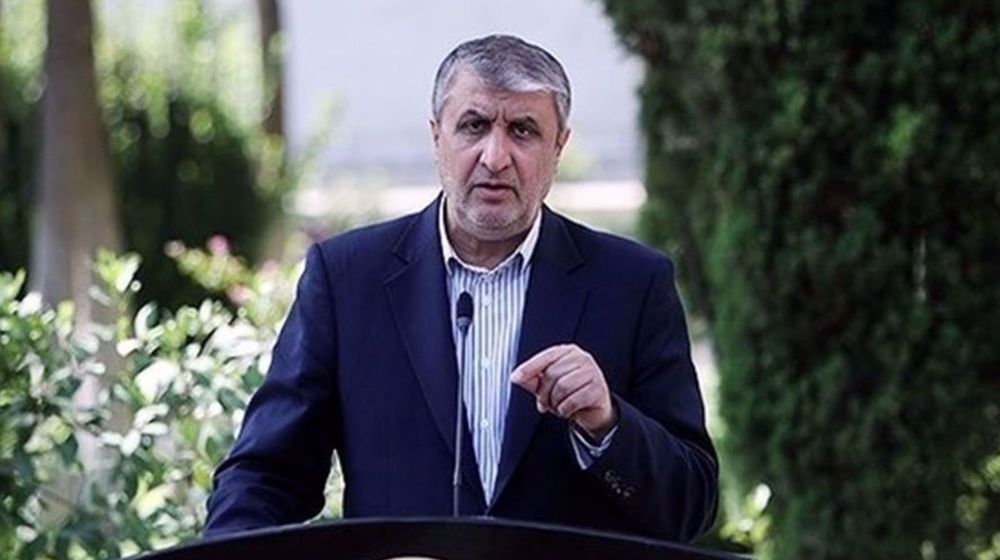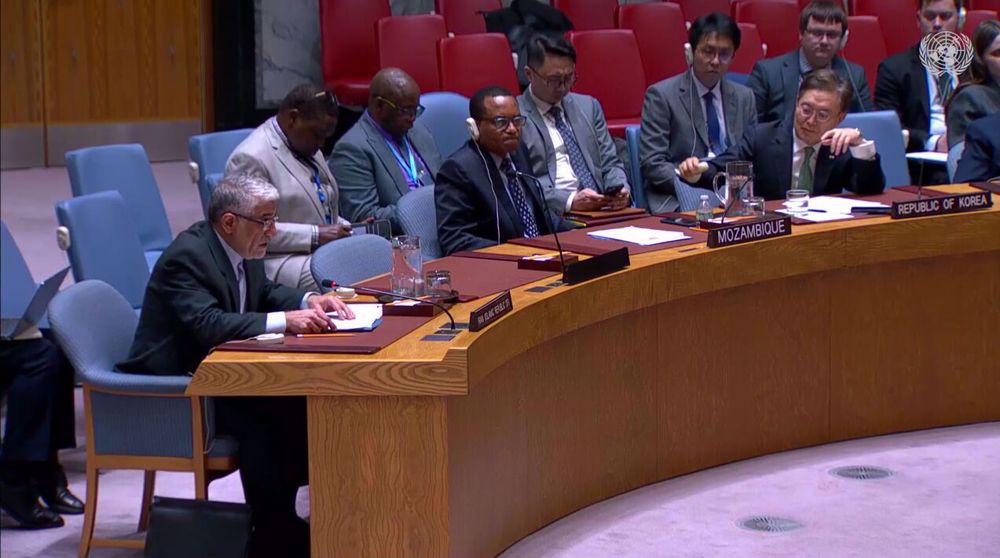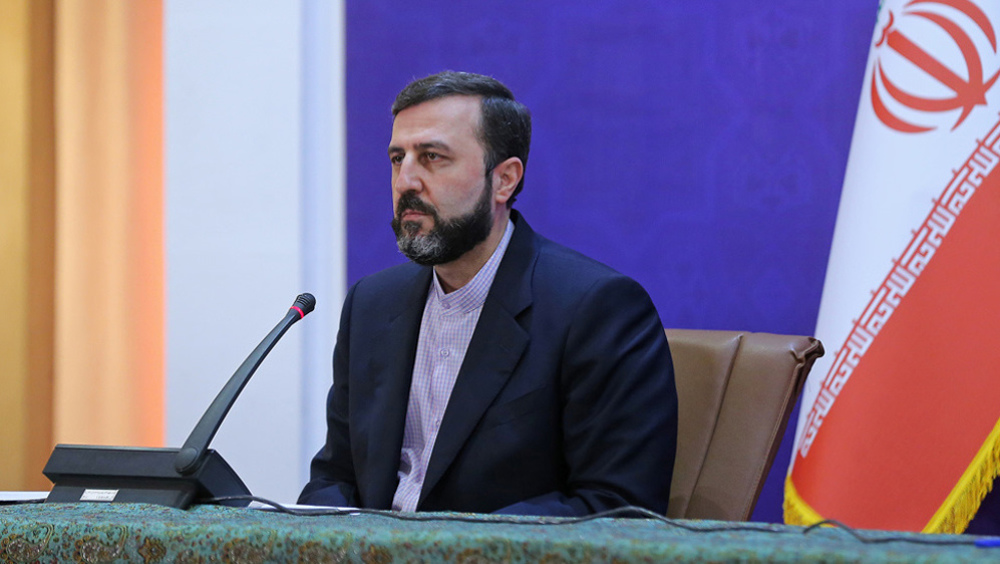Iran's 'PMD' case closed at IAEA: Zarif
Iranian Foreign Minister Mohammad Javad Zarif says the issue of the so-called possible military dimensions (PMD) of Tehran’s nuclear program has effectively come to an end at the UN nuclear monitoring body.
Zarif made the remarks in a meeting with Pakistani Prime Minister Nawaz Sharif in the capital Islamabad on Wednesday.
The top Iranian diplomat referred to the recent report by the International Atomic Energy Agency (IAEA) about Tehran’s atomic program, saying that the report indicates “no diversion” in Iran’s nuclear activities.
"The issue of Iran's nuclear dossier and PMD has concluded. Even though some minor issues have been mentioned in the recent IAEA report, Iran has had no diversion [in its nuclear program]," Zarif said.
In its latest report on December 2, the UN nuclear monitoring body said it has found no indications of the diversion of nuclear material for non-civilian objectives in Iran's nuclear program.
The report also alleged that activities related to the development of a nuclear explosive device in Iran's nuclear program "did not advance beyond feasibility and scientific studies, and the acquisition of certain relevant technical competences and capabilities."
Iran has repeatedly denied any attempt to develop nuclear weapons, saying it is banned based on Islamic teachings.
Zarif remarks come after the P5+1 group of world powers submitted to the IAEA's governing board a draft resolution on Iran’s past nuclear activities, which Iran says will bring an end to past and present outstanding issues regarding Tehran’s nuclear program.
The IAEA Board of Governors is set to vote on the draft resolution in mid-December. Tehran says it will implement a nuclear agreement signed with the six world powers in July once the file is completely closed.

The IAEA has been tasked with the monitoring and verification of technical issues under the landmark agreement, dubbed the Joint Comprehensive Plan of Action (JCPOA), Iran struck with the P5+1 group – the US, Russia, the UK, France, China and Germany – in the Austrian capital, Vienna, on July 14.
On the same day, a roadmap for “the clarification of past and present outstanding issues” regarding Iran’s nuclear program was signed by IAEA's chief Yukiya Amano and Head of Atomic Energy Organization of Iran Ali Akbar Salehi in the Austrian capital.
Under the JCPOA, limits are put on Iran’s nuclear activities in exchange for, among other things, the removal of all nuclear-related economic and financial bans against the Islamic Republic.
The Pakistani premier, for his part, praised as satisfactory Iran’s cooperation with the IAEA to settle issues pertaining to Tehran’s nuclear program.
During the meeting, Zarif and Sharif also discussed the latest developments in the Middle East and underlined the necessity of boosting regional cooperation for the settlement of ongoing crises in the region.
The two officials stressed that the crisis in Syria should be settled only through diplomatic channels. They also said that the Yemeni crisis can be settled only politically, not militarily.
Zarif, who arrived in Islamabad on Tuesday to attend the 5th "Heart of Asia – Istanbul Process" Ministerial Conference, also sat down with Afghanistan’s President Ashraf Ghani.
In the meeting, Zarif and Ghani underlined the need for combating terrorism and drug trafficking in the region.
The 5th Heart of Asia ministerial meeting kicked off in Islamabad on Wednesday to discuss the situation in Afghanistan 14 years after the US-led invasion of the country. The meeting is attended by the foreign ministers of 26 countries.
The meeting seeks peace and development in Afghanistan and regional cooperation in the fight against terrorism and extremism. The forum also seeks to promote economic development in the region and aims to encourage cooperation in curbing drug trafficking and other organized crimes in the region.
'Next to impossible' to rescue patients from Gaza's Kamal Adwan Hospital: Director
VIDEO | Vietnam current prosperity
Report blames gasoil exports for shortage at Iranian power plants
VIDEO | Hind Rajab Foundation names Israeli war criminals vacationing after Gaza genocide
VIDEO | Australians rally for Gaza ahead of Christmas festivities
VIDEO | Attacks on Sana'a
Iran reports further drop in annual inflation rate in December
Israel indicts two settlers over suspected spying for Hezbollah















 This makes it easy to access the Press TV website
This makes it easy to access the Press TV website